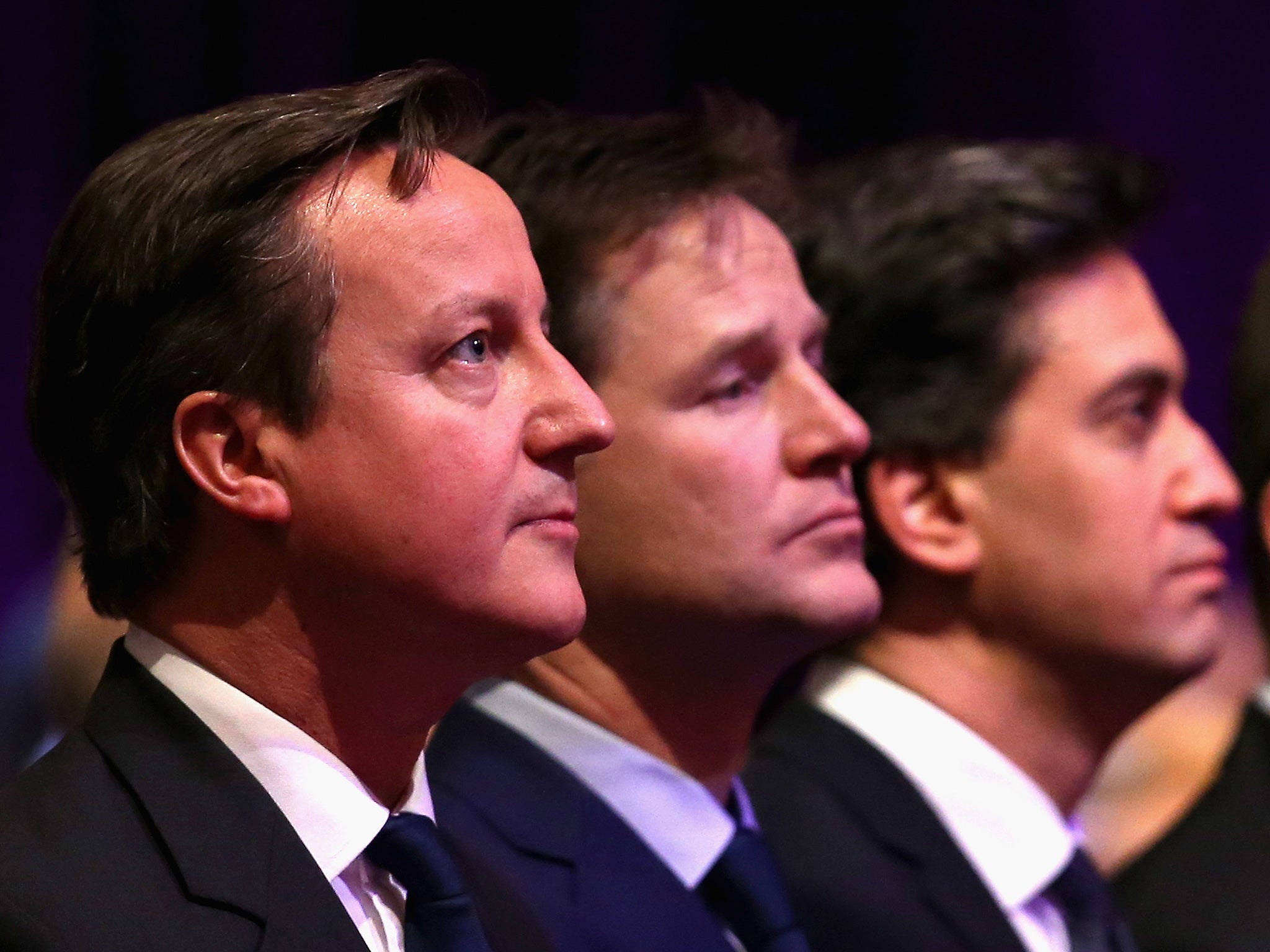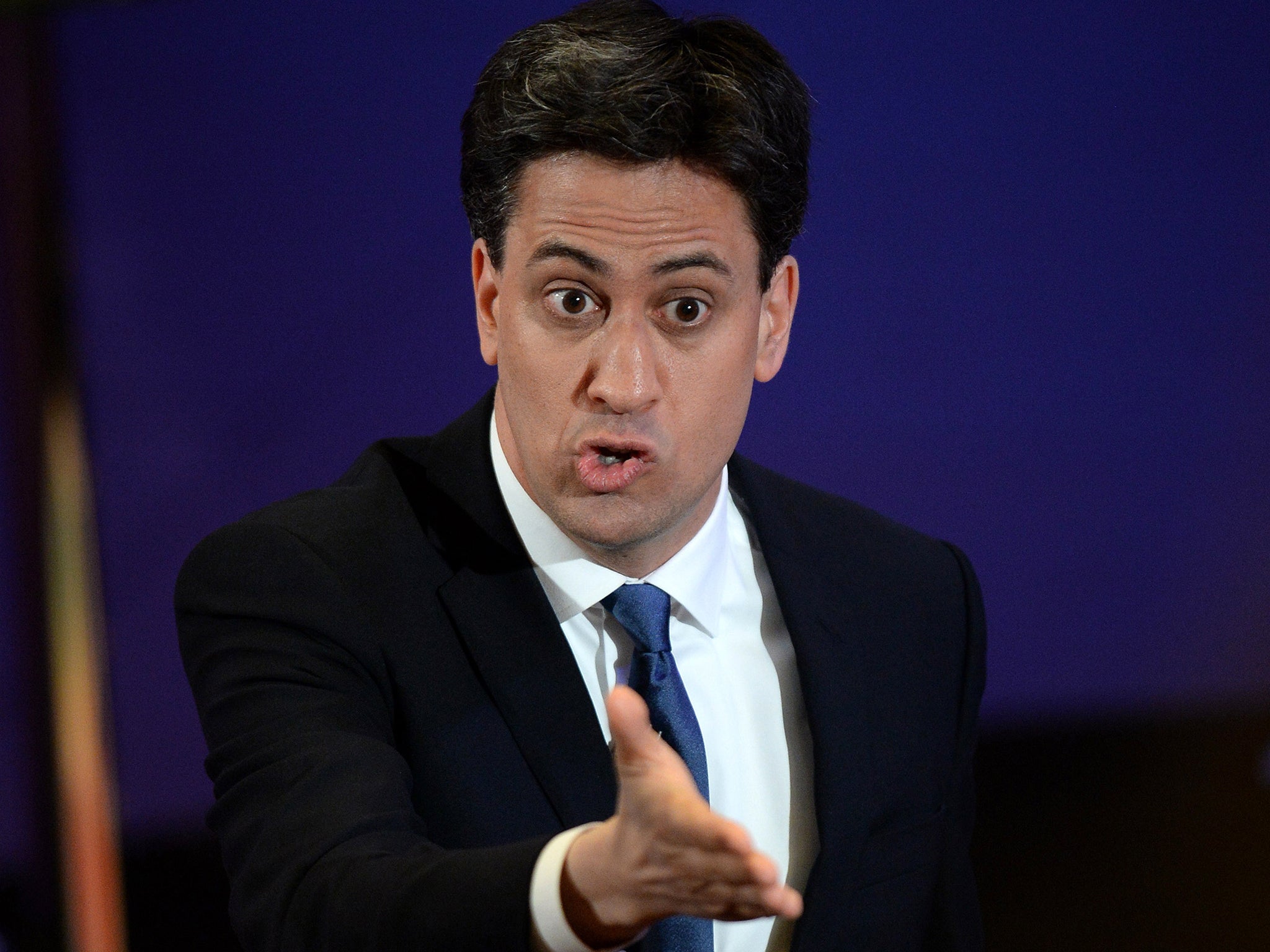General Election 2015: The campaign for leaders to dodge brickbats and ‘address’ Scotland
Inside the Election

Your support helps us to tell the story
From reproductive rights to climate change to Big Tech, The Independent is on the ground when the story is developing. Whether it's investigating the financials of Elon Musk's pro-Trump PAC or producing our latest documentary, 'The A Word', which shines a light on the American women fighting for reproductive rights, we know how important it is to parse out the facts from the messaging.
At such a critical moment in US history, we need reporters on the ground. Your donation allows us to keep sending journalists to speak to both sides of the story.
The Independent is trusted by Americans across the entire political spectrum. And unlike many other quality news outlets, we choose not to lock Americans out of our reporting and analysis with paywalls. We believe quality journalism should be available to everyone, paid for by those who can afford it.
Your support makes all the difference.Just before his turn in the BBC’s Question Time programme on 30 April, David Cameron requested that a bar stool be put on the stage for him to be able to sit. Ed Miliband opted to stand the whole way through instead, as he did not want the stool there for his turn in case he tripped over it – which was ironic, because he stumbled slightly as he left the stage.
That was a gift to the headline writers on right-wing newspapers. “We have been aching for a bacon sandwich moment,” one Fleet Street veteran admitted. Thursday’s programme was the best of the four featuring party leaders, a reminder that we should have had more than one real “debate” in which they interacted.
As it happens, I was the first newspaper journalist to interview all three main party leaders in this election – Mr Cameron on a plane during a mad 750-mile dash between the UK’s four nations, Mr Miliband and Mr Clegg on their battle bus. In this very tightly-controlled election, their refusal to answer certain questions was revealing.
Mr Cameron declined to tell me where the Tories’ £10bn of further welfare cuts might come from. I think the Tories should have spelt out how they would find at least half the savings. Many voters do not trust the Tories’ instincts on public services and the poor, and they look like they have something nasty to hide.

To me, the Prime Minister seemed up for the fight. The only time he became tetchy was when I asked him about his remark to the BBC that he would not serve a third term after 2020. He probably regrets it, as it gave the false impression he lacks hunger for a second term. In the past week, he has pressed button P for passion, rolling up his sleeves and advertising his hunger at tub-thumping rallies. It looked a bit fake at first. But all politicians are actors and Mr Cameron got better at it as the week went on, culminating in a strong performance on Question Time.
Next up for me was Mr Clegg. He was the most relaxed of the three leaders. He looked like a man who has nothing to lose – apart from his 56 MPs and his own seat, of course. I suspect he is in “que sera sera” mode to survive the brickbats, not least over university tuition fees –the shadow he now knows he will never escape. The Deputy Prime Minister pointedly refused to tell me whether he would veto an in/out EU referendum in coalition talks with the Tories. I took this as a signal he would allow one to go ahead, since it is Mr Cameron’s bottom line.
Are you undecided about who to vote for on 7 May? Are you confused about what the parties stand for and what they are offering? Take this interactive quiz to help you decide who to vote for...
Beneath Mr Clegg’s calm exterior lies deep frustration that his party has been written out of the election script by much of the media, including the BBC. The Lib Dems’ problem is that they are not “new”, as they were in 2010. This time people don’t agree or disagree with Nick, but Nicola. The Scottish National Party leader has been the star of this campaign.
To get headlines, Mr Clegg has had to reveal “red lines” –his non-negotiable demands in any coalition negotiations, a change of course after refusing to use the phrase when he launched the Lib Dem manifesto. His party has to shout very loudly to get heard. The Lib Dems are going to suffer collateral damage from the endless Tory attacks on the prospect of a post-election Labour-SNP deal, notably in their South West stronghold.

The third man I interviewed was Mr Miliband. It took place at 10pm, not a great time for either of us to be sparky, but he certainly was. He exuded a confidence I have not seen in him before, a sure sign he is having a good campaign. He has grown before our eyes in this election. Candid Tories admit privately that they underestimated him, forcing them to thrash round for a new line of attack. Luckily for them, they found one. Years of neglect by Labour of its Scottish fortress will result in it being seized by the SNP in next Thursday’s election. “We are swimming against a tide of emotion,” one senior Labour figure admitted.
Losing Scotland would be bad enough in itself, but it gets worse. If he becomes prime minister, Mr Miliband would almost certainly depend on SNP votes in the Commons, a spectre that is harming Labour among English voters. I asked Mr Miliband whether it would be an “illegitimate” government if Labour won fewer seats than the Tories but secured a Commons majority with SNP votes? “I am not getting into hypotheticals,” he replied. When I asked whether this made the Lib Dems more attractive partners, he said: “Same answer.” But it does.
When we chatted after the interview, Mr Miliband was confident that the Tory-encouraged frenzy about a Labour-SNP deal would not last until polling day. I said the Tory-supporting newspapers would make sure it lasted. So far, I am winning our bet, which is bad news for Labour. One Labour insider sighed: “If it were not for Scotland, we would be home and dry.”
Mr Miliband remains very confident of becoming prime minister, one way or another. Will the SNP put him into power, or will the prospect of a Labour-SNP deal keep Mr Cameron in Number 10? That is the question. It could still go either way.
Join our commenting forum
Join thought-provoking conversations, follow other Independent readers and see their replies
Comments